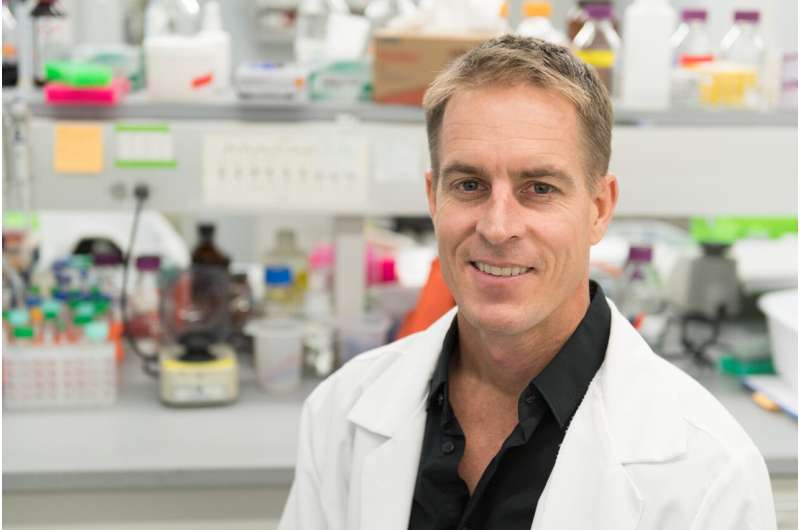
Colorado State University Professor Brian Foy has been studying ivermectin for nearly a decade, long before it became a hot topic in the United States.
He’s leading a team of international scientists—including researchers from the country of Burkina Faso in West Africa, the Netherlands, the United Kingdom and the U.S.—to study the use of ivermectin to reduce cases of malaria in several villages in Burkina Faso. Malaria affects more than 200 million people worldwide and kills 445,000 people, mostly children, each year.
Earlier results from the team’s first clinical trial in Burkina Faso were promising, showing a 20% reduction in malaria cases in young children. Foy said the ivermectin being used in these clinical trials is approved by regulatory agencies in mostly tropical countries to prevent river blindness, or onchocerciasis and strongyloidiasis—conditions caused by parasitic worms.
He sat down recently with SOURCE to discuss what’s happening in the U.S. with ivermectin and provided an update on his malaria research.
Q: What’s the difference between diseases like river blindness or malaria, which are caused by parasites, and COVID-19, which is caused by the SARS-CoV-2 virus?
Foy: The organ systems affected by these diseases and symptoms are completely different between these parasitic diseases and COVID-19. Also, the parasites causing these diseases are living, cell-based organisms and therefore much bigger and far more complex than viruses. Viruses like SARS-CoV-2 aren’t cells. They infect your own body’s cells and coopt the cells’ protein “machinery” to make more viruses.
Ivermectin was specifically designed to combat multicellular invertebrate organisms, things like parasitic worms and insects that can infest humans and other animals. There’s no scientific evidence that the class of natural, bacteria-derived chemicals that ivermectin is derived from evolved to target a virus.
Given the current lack of evidence of ivermectin’s effect against SARS-CoV-2, no doctor should be prescribing ivermectin to treat or prevent COVID-19. It’s not approved to treat humans for anything other than strongyloidiasis in the U.S.
Q: You’ve been studying Ivermectin for a decade at this point. What’s it like to have more people talking about this drug, while at the same time, unfortunately, there’s a lot of misinformation being spread?
Foy: We’ve gotten to the point where people don’t believe scientists, regardless of what they say, which is frustrating to us all.
When the pandemic started, scientists thought: We must test everything we can against SARS-CoV-2. It was clear, early on, that this was a deadly virus, and we had nothing to combat it. That’s why anyone can now visit ClinicalTrials.gov and see that there are around 30 clinical trials registered or ongoing to study whether ivermectin has any clinical activity against COVID-19 in the U.S.
But now we have excellent and safe vaccines to prevent hospitalization and death, and really good monoclonal antibody treatments if you get COVID, and both have been tested repeatedly in huge, randomized clinical trials. Even if the best-ever study results came out on ivermectin, it’s not going to be close to the more than 90% effectiveness we’re seeing with vaccines.
Drugs typically do not work as well against viruses like SARS-CoV-2 compared to biologics and vaccines, and especially a drug like ivermectin that was developed in the 1970s and was never specifically developed against this virus.
It’s flabbergasting to me that there’s still talk about ivermectin now, compared to a year ago. It doesn’t make sense.
Q: What’s the status of your malaria work in Burkina Faso?
Foy: Results from the first trial were published in The Lancet in March 2019. We recently completed a follow-up study, giving ivermectin to more than 3,000 people.
We are giving them a higher dose of the drug and using it in combination with other antimalarial drugs. Right now, we are cleaning the database before we “unblind” the results and learn who got the placebo compared with who got the treatment.
That trial is one of five additional phase 3 clinical trials that will be conducted across Africa and Southeast Asia.
Q: What is missing from the current dialogue about the use of ivermectin?
Foy: What people don’t understand about science is that it is ultimately based on community consensus among the scientific experts, and that consensus is constantly being challenged and re-tested by these experts to see if the data underlying the consensus holds up over time.
Science is not about one person jumping up and talking to members of Congress or tweeting or speaking at a public meeting about their own opinions. You can always find that one person.
The consensus against the use of ivermectin to prevent or treat COVID is clearly there, but we have these social platforms that allow people to have loud voices. They might have a political or monetary agenda, and a lot of people, unfortunately, listen to that loud voice or voices.
Science doesn’t work that way. Many scientists and engineers work together and in competition to discover new ideas and invent new things from the discoveries, like your cell phone. Similarly, we biologists, physicians and others have worked together and in competition to create these new vaccines but also to test old drugs like ivermectin through rigorous procedures. We know, generally, what works and what doesn’t work.
To ensure things work in humans and are safe, we try to do unbiased trials—like the one I’m leading where we randomize the participants into the different treatment groups, and we don’t yet know who got the placebo or the treatment until the trial is completed and the data logged. Once the data is published, other scientists can see the data and analyze it themselves and criticize it. It’s unfortunately a slow process, but it must be devoid of risks.
Source: Read Full Article
